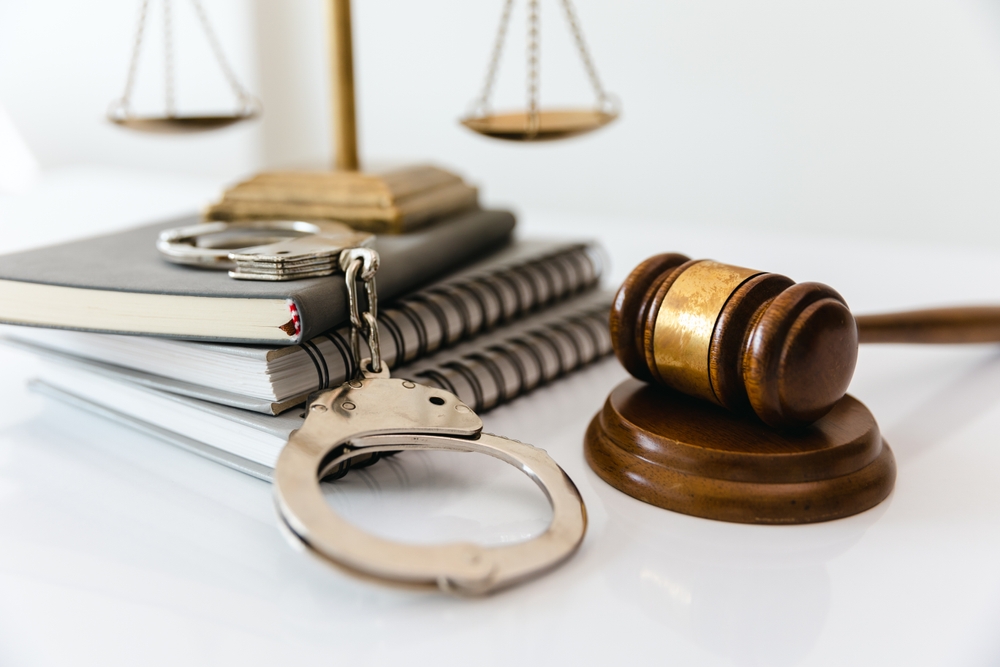Being accused of murder is an extremely serious allegation. However, an allegation is not a conviction. If ever accused of such a crime, it is imperative to seek professional help in order to clear your name.
In this blog, we will address provide information on what to do if you are accused of murder in the UK?
JD Solicitors are a fully (SRA) regulated law firm with a team of highly qualified and specialist solicitors. Our solicitors recognise that being investigated or charged with a serious criminal offence is a daunting prospect.
Our specialist advice and reassurance, from the first phone call through to the conclusion of the case, is the bare minimum of what we offer when it comes to our clients.
Is everyone arrested for murder guilty?
No, an arrest does not equate to guilt. In any legal system that upholds the presumption of innocence, including the UK’s:
Arrest:
An arrest is the act of taking a person into legal custody. It occurs when law enforcement has probable cause to believe that a crime has been committed. (When arrested, officers will proclaim you are arrested on suspicion of a crime). An arrest is the beginning of the legal process, not the end.
Presumption of innocence:
A fundamental principle of law is that a person is presumed innocent until proven guilty in a court of law. The burden of proof rests with the prosecution, which must prove guilt “beyond a reasonable doubt.”
Legal process:
After an arrest, there is a complex legal process that includes investigation, charging, and trial. Interviews with the arrested and other people of interest in relation to the case is usually conducted at the start of the legal process.
During this process, the accused has the right to legal representation and the opportunity to defend themselves. It is the role of the courts to determine guilt, not the police, they accumulate the evidence.
Therefore, an arrest for murder simply means that a person is suspected of the crime and will be subject to the legal process. It does not mean that they are guilty.
What can you do if you are accused of murder?

If you are ever accused and arrested on suspicion of murder, the first step is to enforce your legal rights. It is natural to want to have a strong emotional reaction, as this is a serious allegation. However, as difficult as it may be, taking the following steps is a more advisable way of proving your innocence:
1. Do not speak without a solicitor:
- 1st step : Do not answer any questions from the police without a solicitor present. This is your fundamental right.
- Why: Anything you say can be used against you in court. Even seemingly innocuous statements can be misinterpreted. A solicitor will advise you on how to respond, which is why they are required during any interview.
2. Contact a specialist criminal defence solicitor:
Seek legal representation from a solicitor with extensive experience in serious criminal cases, particularly murder. Murder cases are exceptionally complex and require specialist knowledge, a general practitioner may not have the necessary expertise.
3. Keep the case details and police contact private
Refrain from discussing the details of your case with family, friends, or others. These conversations are not protected and could be used as evidence.
4. Cooperate with your solicitor’s instructions:
Follow your solicitor’s advice meticulously. They will guide you through the legal process and ensure your rights are protected. Your solicitor is your advocate and will work to build the strongest possible defence.
5. Understand the legal process:
Familiarise yourself with the stages of a murder investigation and trial. This will help you understand what to expect. Knowledge empowers you to make informed decisions and reduces anxiety. A specialist criminal defence solicitor will be able to inform you of what to expect.
6. Prepare for a potentially lengthy process:
Murder cases can take a significant amount of time to resolve. Be prepared for a lengthy investigation and trial. This is a complex process, and the prosecution needs time to build its case.
7. Mental health support:
If accused of murder, the stress, and strain is immense. Seek out mental health support. It is important to look after mental health during this difficult time.
Disclaimer:
This information is intended for general guidance only and does not constitute legal advice. It is imperative to seek the services of a qualified criminal defence solicitor immediately if you are accused of murder.
What are your rights if you are arrested for murder?
When arrested for murder in the UK, you have multiple fundamental rights designed to protect you within the legal system. These include:
- The right to silence: You do not have to answer any questions from the police. However, it’s critical to understand that in certain situations, silence can be used against you in court.
- The right to legal advice: You have the right to free legal advice. This means you can speak to a solicitor, and it’s highly recommended that you do so before answering any police questions.
- The right to inform someone: You have the right to have someone informed of your arrest. This could be a family member or friend.
- The right to medical assistance: If you require medical attention, the police must provide it.
- The right to be informed of the reason for your arrest: The police must tell you why you are being arrested.
- The right to see the codes of practice: These codes outline how the police must conduct themselves.
- Rights Regarding Detention: There are limits to how long you can be held in custody without being charged. For serious offences like murder, these time limits can be extended, but only under strict legal conditions.
How can I prove my rights were violated?
Maintaining records will prove any violated rights, meticulous documentation is paramount. Immediately record every detail: dates, times, locations, and officer names. Seek medical attention for injuries, ensuring records accurately reflect their cause.
While gathering photographic or video evidence is unlikely, any available documentation is invaluable, ask for copies of any documentation.
Speak to a specialist criminal defence solicitor; their expertise is crucial for navigating this process. They’ll record all interactions and advise on potential legal actions, and will confirm if your rights have been violated.
This can take the form of filing a formal complaint with the police force involved, and if dissatisfied, escalate to the Independent Office for Police Conduct (IOPC) in England and Wales.
Legal action, such as claims for wrongful arrest or false imprisonment, may be pursued. Your solicitor will assess the grounds and guide you through the process, which often involves presenting evidence in court.
If evidence was obtained through rights violations, it may be deemed inadmissible. Witness testimony can corroborate your account.
Remember, proving rights violations is challenging, demanding thorough documentation, strong legal representation, and an understanding of legal procedures. The burden of proof varies, and your solicitor will clarify the required standard.
Criminal defence solicitors – Murder accusations

JD Solicitors can provide expert guidance and legal representation if you find yourself in need of defence against a charge of murder. JD Solicitors is a respected criminal defence firm known for our successful track record. Our team of experienced solicitors has extensive experience defending clients against a wide range of criminal accusations.
We represent clients throughout England and Wales, and we’re committed to achieving the best possible outcome for your case.
We understand the urgency of seeking legal advice in criminal matters. That’s why we offer a 24-hour call-out service for those detained in police custody. This ensures we can address your needs immediately.
In this blog, we hope to have provided helpful information regarding what to do if you are accused of murder in the UK.
For immediate advice, call us at 01902 943726.
Emergency Assistance Outside Office Hours:
If you require legal help outside our regular business hours, don’t hesitate to call our emergency line at 07971 194042.
We’re here for you, every step of the way.


